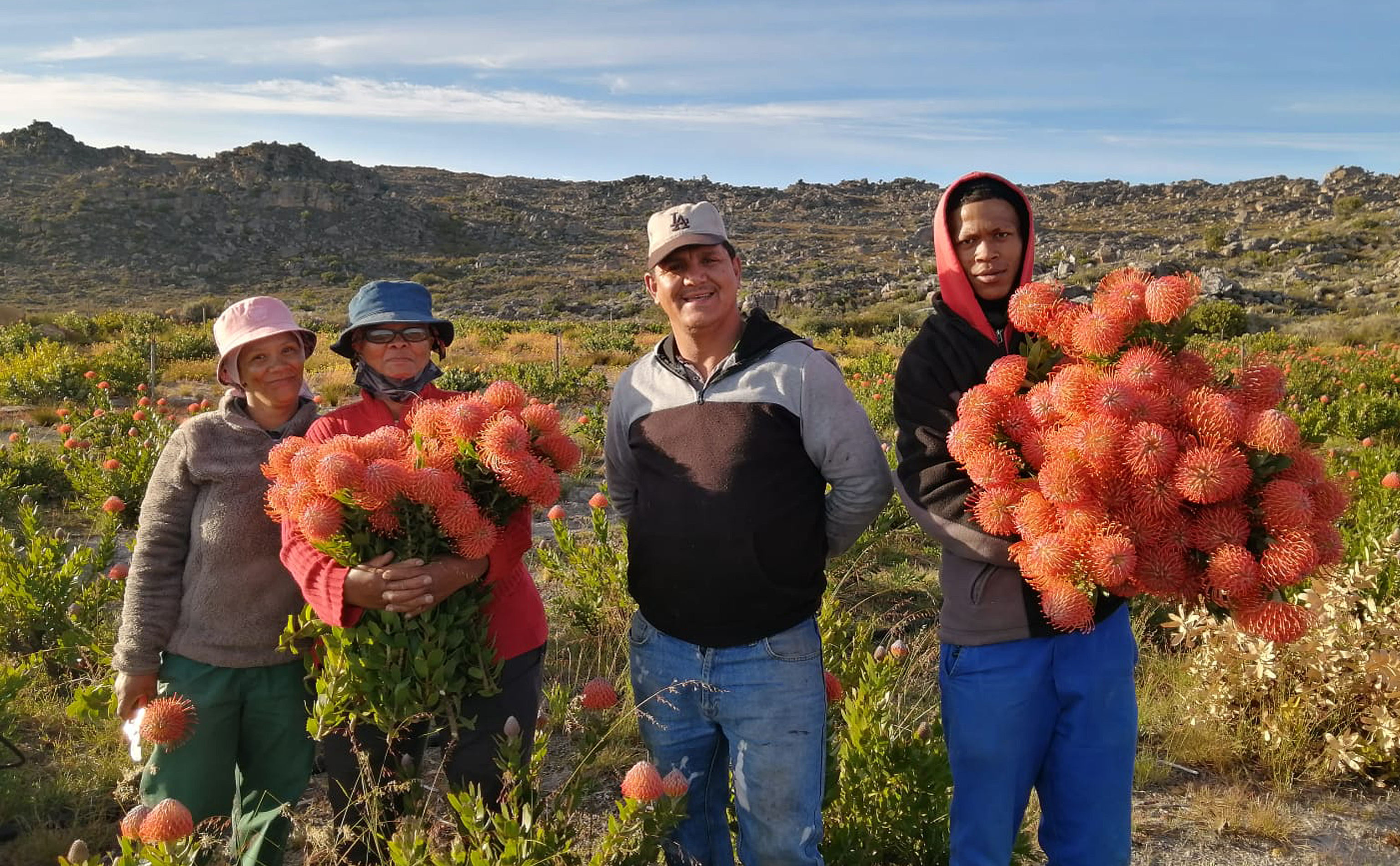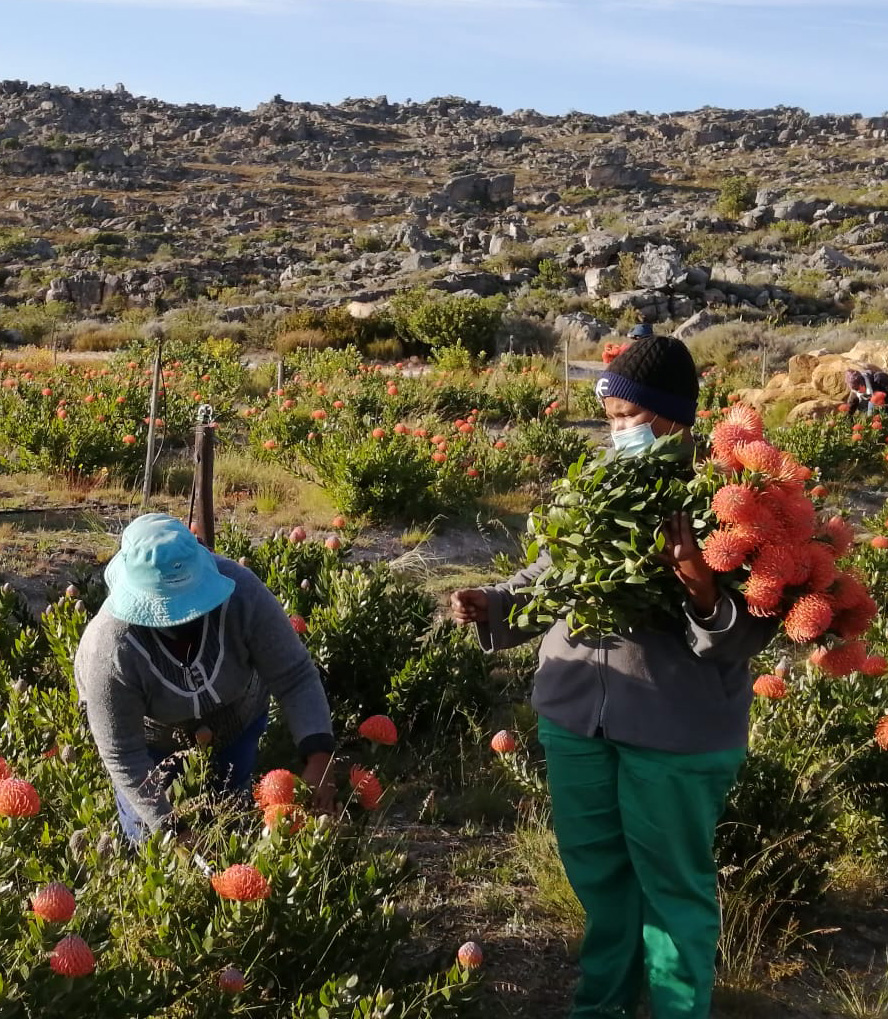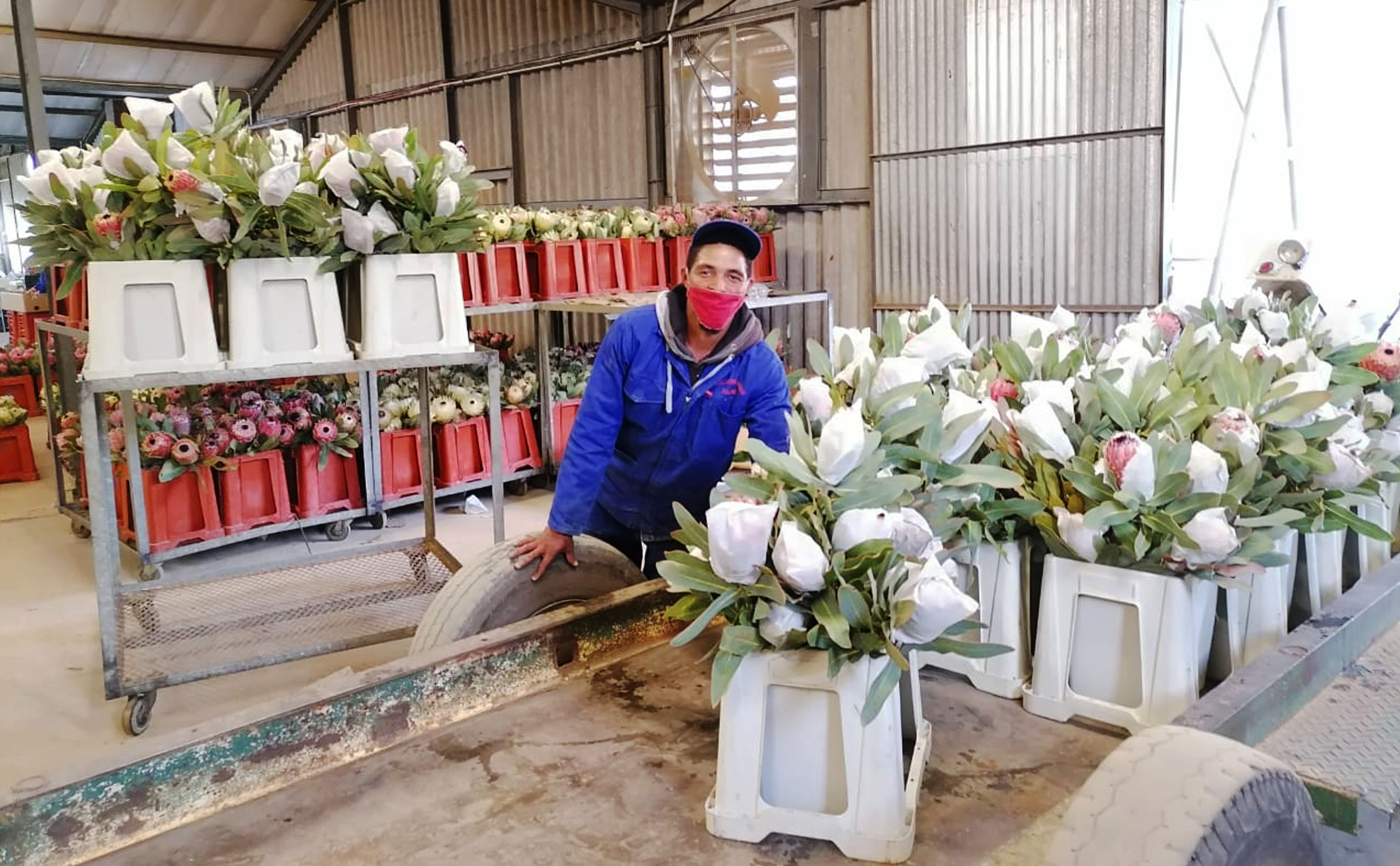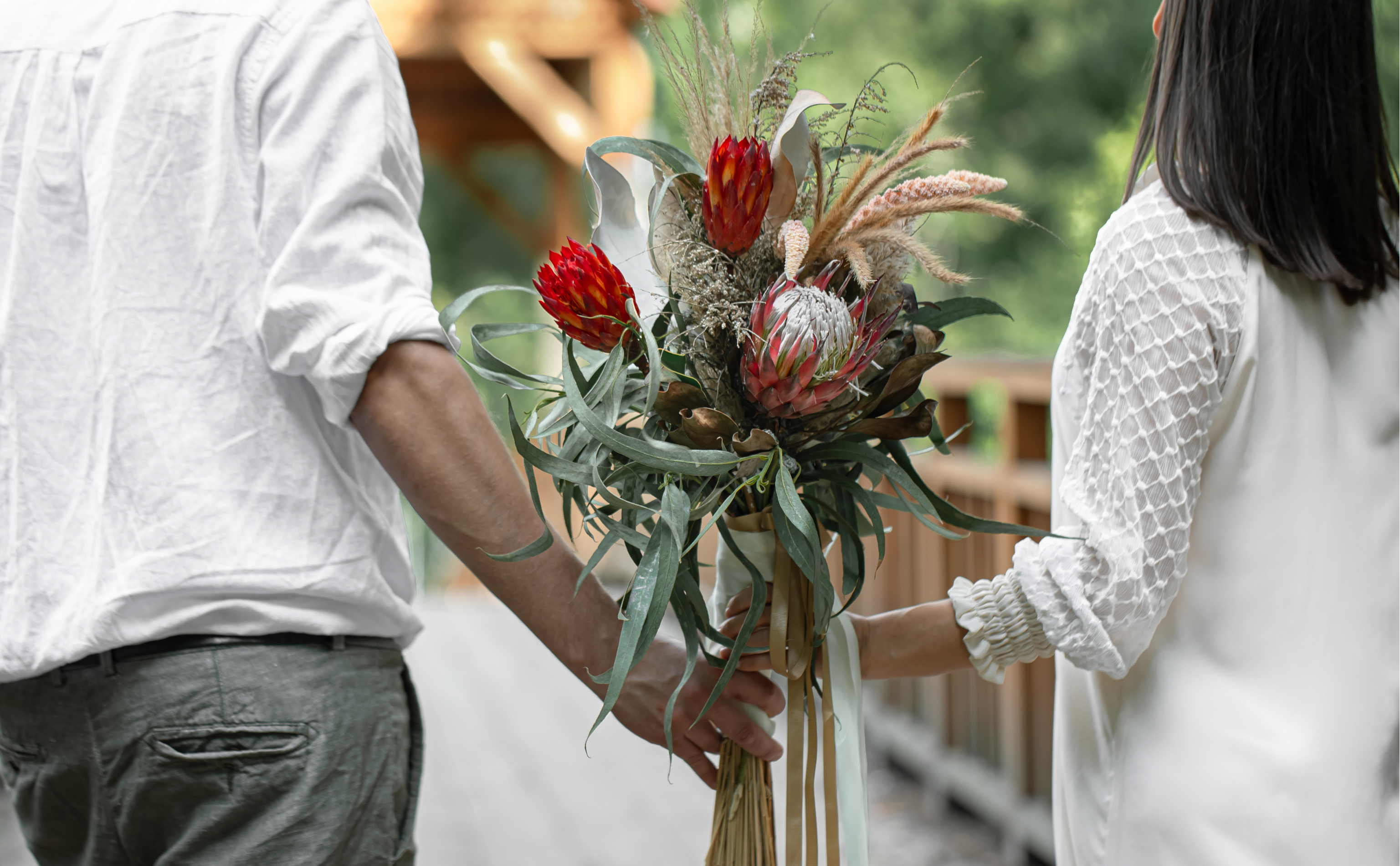Proteas and empowerment on Porterville Mountain, South Africa

Marius and his wife Margot can best be described as Odilia’s mayors. Their farm ‘Berghoff’ is located high on Porterville Mountain, South Africa, where the family has been farming Proteas for over 50 years. Why are they Odilia’s mayors? – They run their own empowerment project and build a community on their farm. So, what’s the full story of Berghoff? We spoke with co-owner Marius.
Picking wild Proteas
“My parents in law, Denis and Aleysia Shaw, bought the farm back in 1959. In the 60s/70s, they started picking wild Barbigeras in the Groot Winterhoek mountains. But commercially grown Proteas and wild grown Proteas are two different things. Wild Proteas often have diseases and insect damage, the stems are crooked and short and the flowers are too open. But still, they started exporting them to the Netherlands and found out there is a market for them. Eventually they collected the seeds from the wild proteas and planted them on Berghoff. Margot and I took over the farm in 2007, before I was involved part-time since about 2000 whilst working at Stellenbosch University. Apart from Proteas, we also grow other Proteaceae such as Leucospermum. We focus on products that we know do well in the market and that are unique to Berghoff, such as the Proteas ‘Barbigera’, ‘Snow Princess’, ‘Red Magic’, ‘Didi’, our latest addition ‘Nella’, and Leucospermum ‘Crimson’.”
Community
“About 70% of our workers were born on Berghoff, so it’s not just a regular employer-employee relationship. This is a family farm and we are a community. The people have names, they have husbands, wives, children and pets that all live on Berghoff. Margot invests a lot of her time in the community. We have a primary school on the farm and once the kids go to high school, we drive them to the nearby town, Piketberg. If people need medical or legal help, Margot steps up or when the pets need to go to the vet, we drive them to town. We are so much more than just a farm.”

Empowerment farm
If you are familiar with the South African history, you know that apartheid (segregation) is a big part of its history. In the 90s the South African government started buying farming land from white owners and redistributing the land to black people, with the intention to improve the livelihood of the beneficiaries. But over the years it became apparent that this program seldom led to the desired results, mostly due to a lack of support to the new farmers. Berghoff farm runs its own successful empowerment project and has a slightly different approach:
Marius explains; “Margot and I want to leave something tangible behind – we are just custodians of the land. Fifteen years ago, we established ‘Mountain Dew’, our empowerment farm. It belongs to the workers of Berghoff and we farm with them on Mountain Dew in a 50/50 joint venture. The people live on Berghoff and get paid to work on our farm and if they work on their own farm, Mountain Dew, they also get paid to do so. Plus, they get their share of the profits of Mountain Dew.
One of the main reasons the project is a success is because we still own 50% of the farming operation, so we have a vested interest in making it a success. In my opinion, if you just take land and give it to people, you will be setting them up for failure. You need an agricultural or business background, training or skill to do something with the land that will be successful in the long term. I’m teaching the shareholders the ropes of running a farm as a business. For me, that’s also been a big learning curve, a lot of hard work with very little financial reward but lots of satisfaction. Eventually, I want to reduce my stake in Mountain Dew to 10%. The beneficiaries must step up and take over the management of their farm. When (if!) we retire in 10 year’s time and walk away from a successful venture there, we would be more than happy.”

